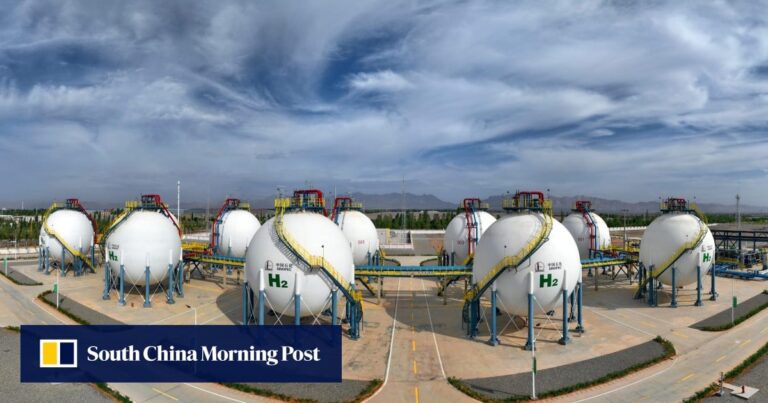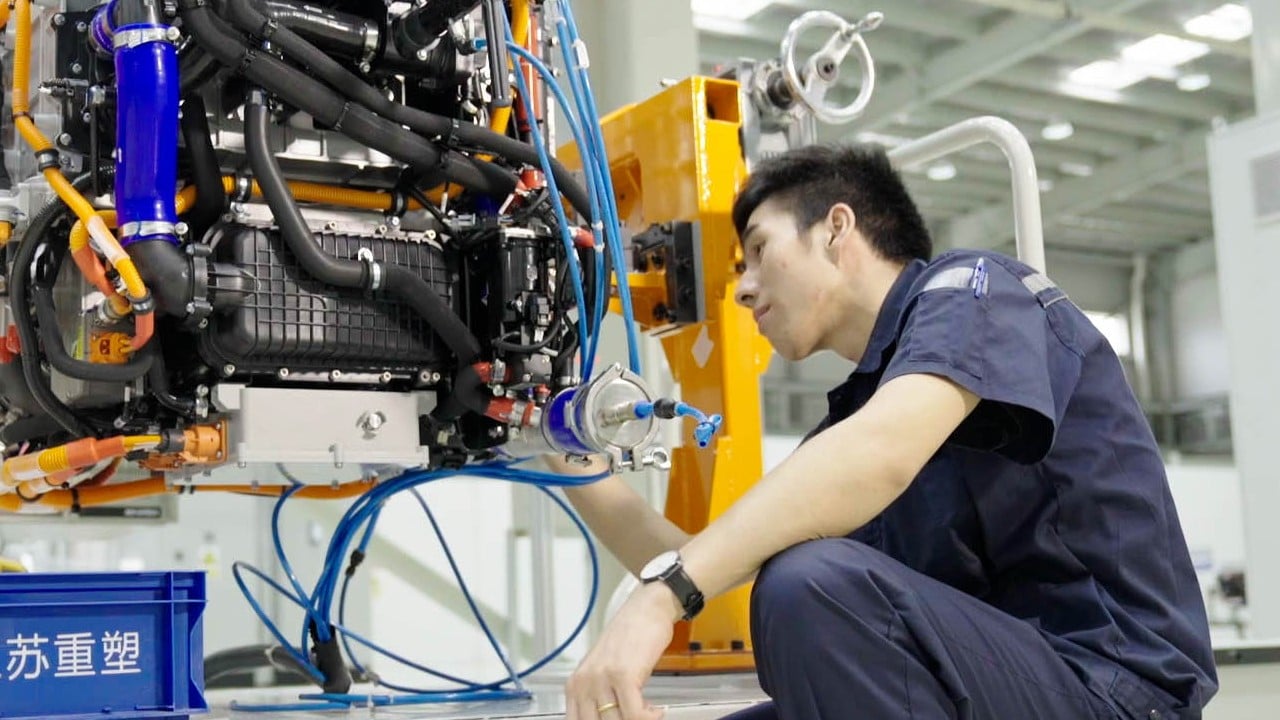“For example, electrolysis equipment produced in mainland China is world-class,” he said, referring to machines that split water molecules into hydrogen and oxygen.
“If you want to collaborate with Shenzhen, you definitely don’t have that much talent. [in Hong Kong]. “
The government plans to develop fuel certification standards in line with international practices by 2027, according to the document.
Minister of Environment and Ecology Xie Jin-hun pledged to promote regional cooperation, outside investment and the development and import of hydrogen through joint ventures.
He said the Hong Kong government would use its “unique advantages of strong support from the motherland and close connections to the world” to promote Hong Kong as a demonstration base for hydrogen development.
Yip, who is also an investment expert in green assets, said the strategy report failed to identify Hong Kong’s “unique and key niche” as an international financial hub that could benefit from the hydrogen market.
“This is about how to mobilise Hong Kong’s capital market to support a huge market for green hydrogen and the green energy transition,” Yip said.
“I’m talking about billions of dollars being put into ESG. [environmental, social and corporate governance] “portfolio”
The framework, released by Singapore’s Ministry of Trade and Industry in 2022, adopted five focused approaches to building hydrogen supply chains in the country and across Asia.
Then-Deputy Prime Minister and Finance Minister Lawrence Wong said Singapore would test advanced hydrogen technologies that were “ready for commercialisation” and conduct research towards developing such technologies.
The city government also plans to work with industry and international partners to enable the formation and expansion of a low-carbon hydrogen supply chain, including promoting a certification scheme to ensure methodologies are “interoperable across jurisdictions.”
Wong also promised to develop land and infrastructure plans and pace their implementation accordingly, and finally, support workforce training.
Singapore plans to generate up to half of its electricity from hydrogen by 2050. The country is already investing in the sector, granting S$55 million for projects and allocating a further S$129 million from 2021 onwards to solve key bottlenecks in hydrogen technology.
Meanwhile, Tse listed four goals for Hong Kong: improving laws, establishing standards, aligning with the market, and moving forward cautiously.
He added that the government will table proposed amendments to the law early next year to cover the production, storage, transport, supply and use of hydrogen as a fuel rather than a hazardous substance.
Tse also pledged to expand the roles and functions of government working groups to strengthen technical standards and guidelines for hydrogen applications, advise on the future direction towards wider commercialization, and support human resource development and capacity building.
But Yip said the framework, now led by the Department of Environment and Ecology, should have been of a higher standard.
“If mainland China were to handle such a huge strategy, it should be led by the National Development and Reform Commission or the Ministry of Industry and Information Technology, not the environmental authorities,” he said.
An investigation into the composition of the working group revealed that no Commerce Department officials were involved.
Lawrence Yiu Chun-yip, executive director of public policy think tank Civic Exchange, agreed that authorities should get a better grasp on how the city’s market economy can help create greater economic incentives for greater hydrogen adoption.
“[The strategy] “There’s no mention of a financing mechanism,” he said. “The government should have been more proactive in promoting and detailing the use of city financing mechanisms to fund these technologies.”
Dennis Leung Yiu-chung, a professor of mechanical engineering at the University of Hong Kong (HKU) who specializes in renewable and clean energy, said the government should outline a timeline for the medium- to long-term development of relevant technologies.
He noted the importance of indicating when Hong Kong will transition from importing grey hydrogen to using blue and green gas sources with lower carbon emissions.
Tse has previously said green hydrogen is up to four times more expensive than grey hydrogen, while Yip warned that the amount of carbon emitted in producing one unit of the latter is “the same” as using one unit of fossil fuel.
Environmental group Green Earth has also called on the government to set a timetable for the use of green hydrogen and provide more funding opportunities for related projects.
Lee Seung-Gyu, an assistant professor of chemistry at the University of Hong Kong who specializes in hydrogen technology, highlighted how the gas could help Hong Kong achieve carbon neutrality.
“Hong Kong has very strong research institutions, but southern China does not have strong research institutions,” Lee said.
“This research and development, combined with the pilot projects we have in the pipeline, makes Hong Kong a very promising and fast-developing city in terms of hydrogen technology.”



